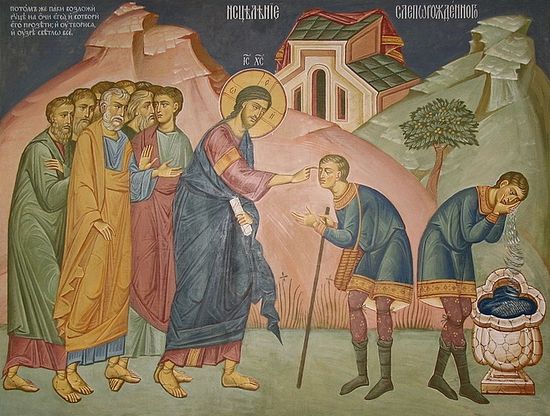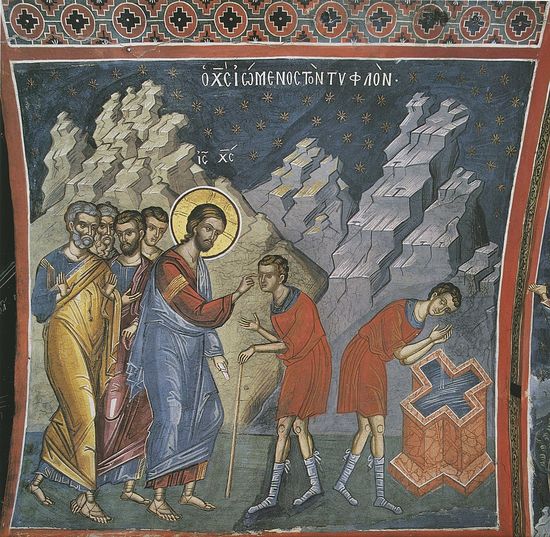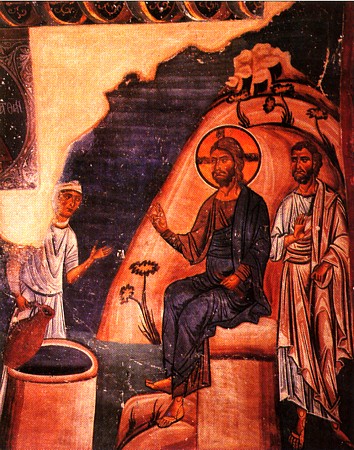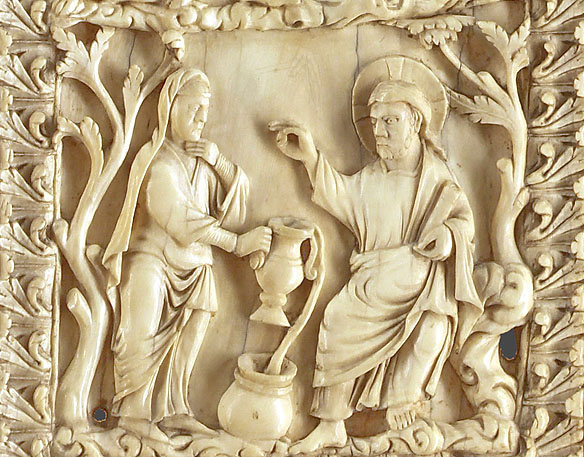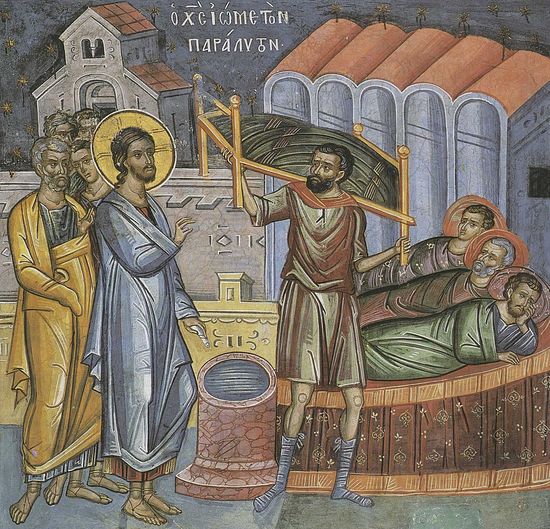In the Name of the Father, the Son and the Holy Spirit.
Before his meeting with Christ the blind man had never seen anything. Everything was dark, he had to guess at things, to explore them by touch, to use his imagination. He had no clear authentic image of things. Then he met Christ, and Christ opened his eyes. And what was the first thing this man saw? The face of Christ, His gaze; the face of God become man, the divine gaze full of attentive, compassionate love resting on him, on him alone out of the whole crowd. Straight away he came face to face with the living God and encountered the miracle which so astonishes us: that God can focus His attention on each one of us — as on the lost sheep — and not see the crowd but see the one and only person. After that the man probably surveyed everything around him, and what he had known by description, by hearsay, became reality — "now I see".

